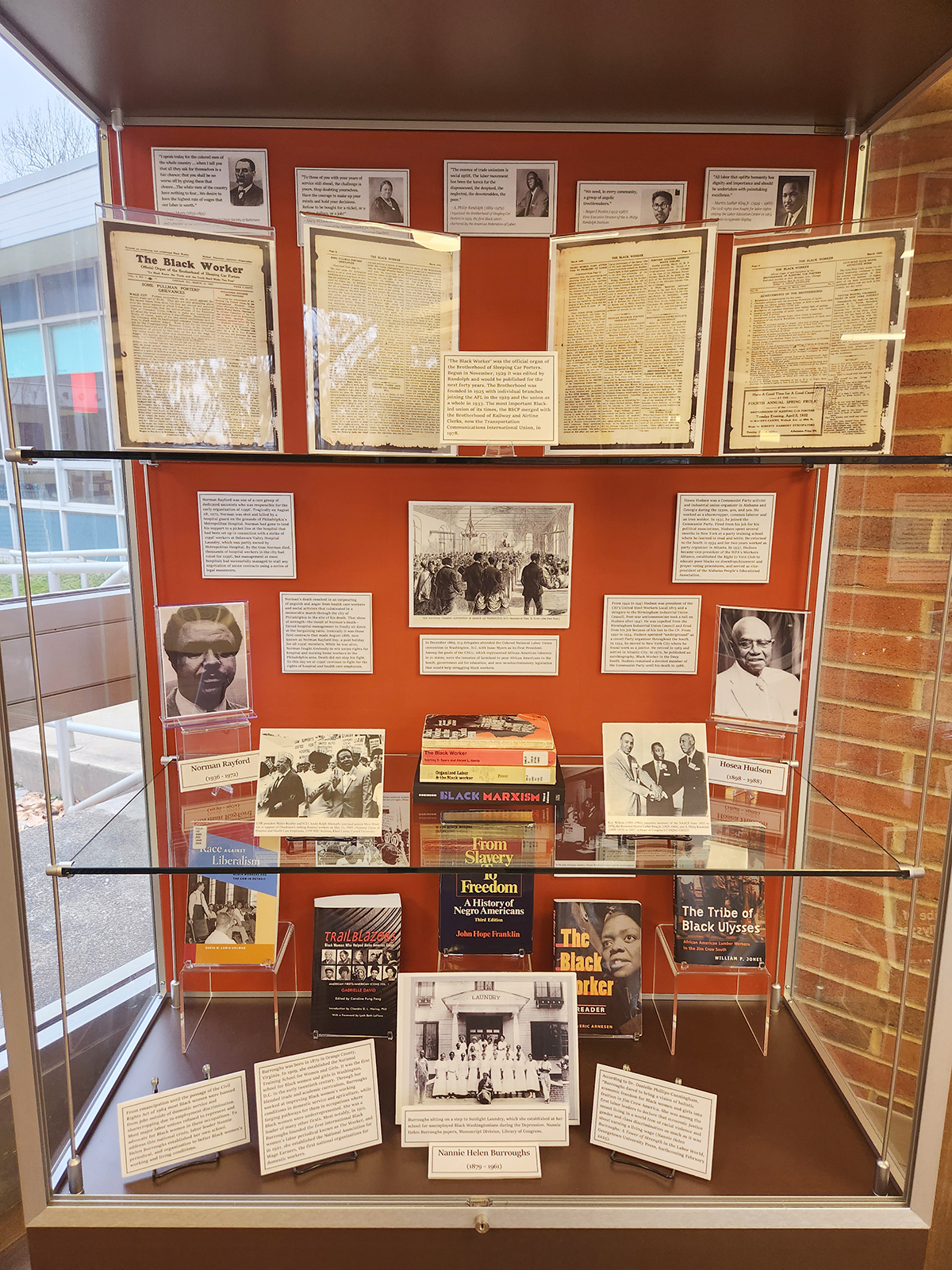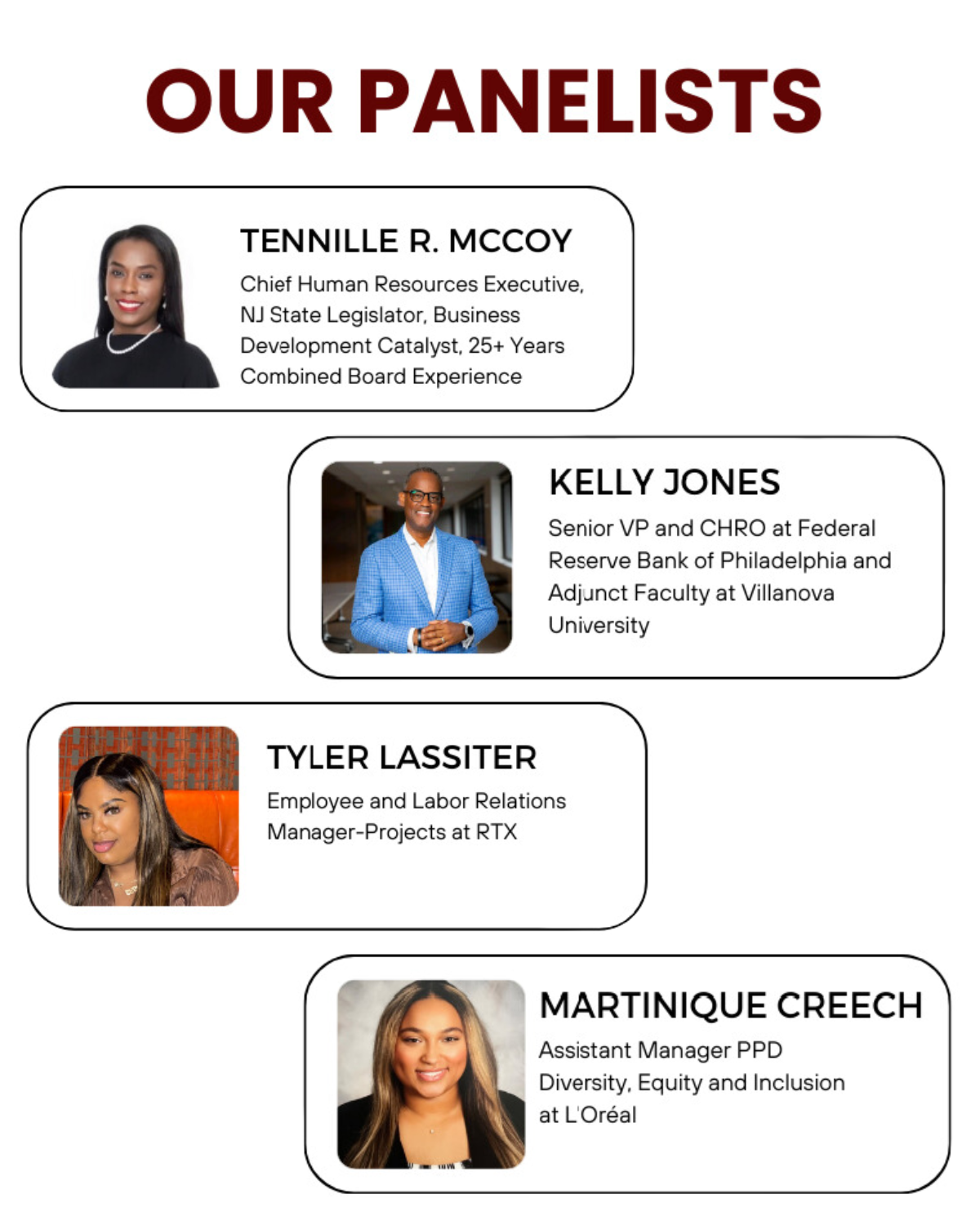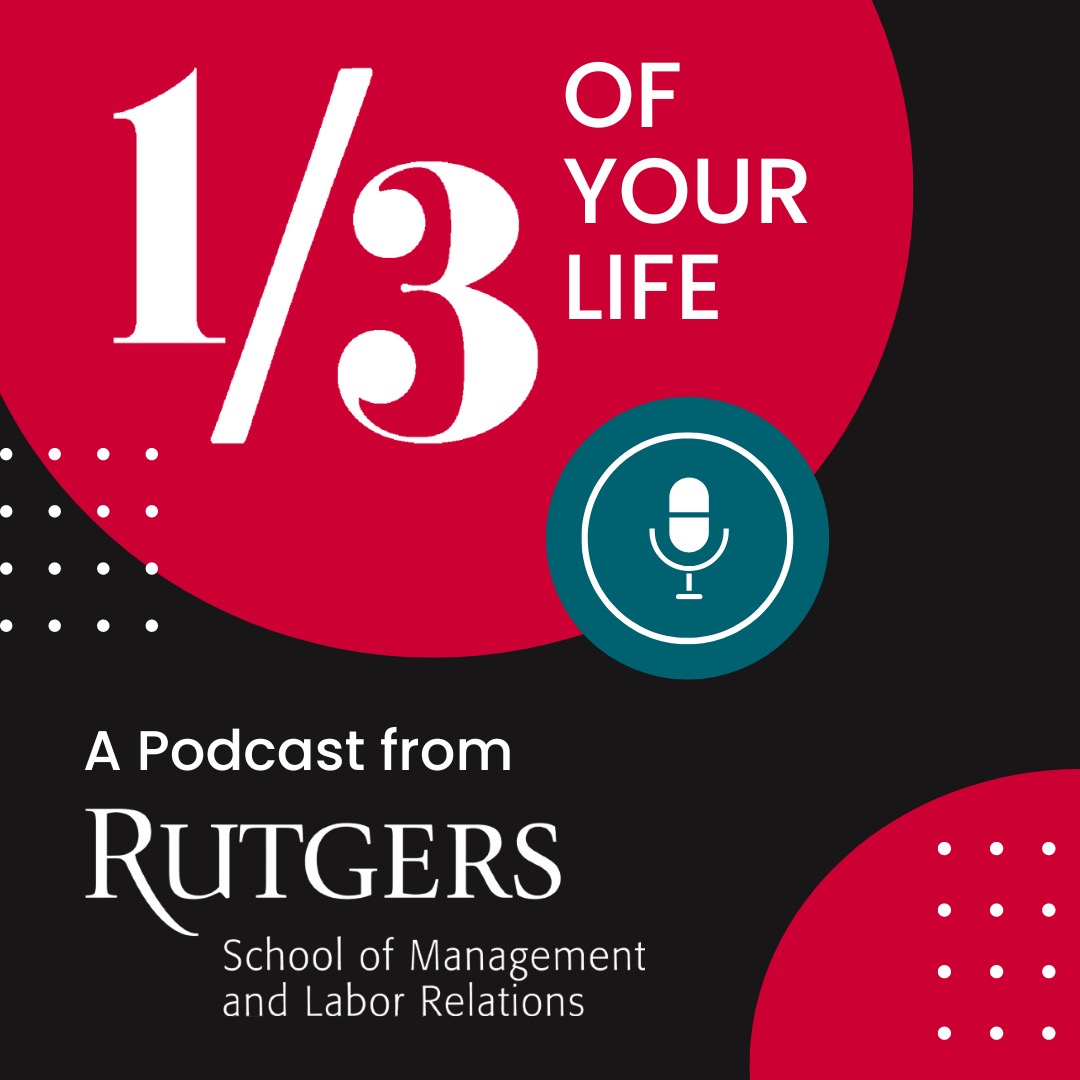
The School of Management and Labor Relations is pleased to share the following resources and activities in celebration of Black History Month!
Scroll down this page to learn more about the following:
-
"LEARN Lessons" Video Series
-
Black Labor History Display at the Labor Education Center
- "Voices of Impact: Black Leaders Shaping HR and Labor Practices" Virtual Panel Discussion
- "A Third of Your Life" SMLR Podcast Episode - Quakertown: A Juneteenth Labor Story
"LEARN Lessons" Mini Video Series
"LEARN Lessons" is a collection of mini-lectures delivered by various experts on topics of importance to unions, labor relations professionals, health and safety advocates, and others working in the field of work and employment.
To commemorate Black History Month 2024, Rutgers LEARN (Labor Education Action Research Network) and the School of Management and Labor Relations have asked a number of labor historians from our Labor Studies and Employment Relations faculty to share some of the untold stories of key moments in Black labor history.
After emancipation, most Black women were barred from jobs outside of domestic service and sharecropping. These were the two most unregulated and underpaid occupations in the U.S. economy. Black women could not turn to labor unions to improve their working and living conditions. During the late nineteenth and early twentieth centuries leaders of most major labor unions refused to tackle racial and gender discrimination in the workplace and larger economy. It was not until 1936 when the American Federation of Labor approved a charter for a domestic workers union. “From Secret Trade Societies to Clubs” explores how Black women demanded labor rights before their recognition in labor unions by building their own institutions and organizations from the 1860s to the 1930s.
Professor Ryan takes a look at the story of health care workers organizing in the early 1970’s in an industry that was previously excluded from the right to Unionize. Norman Rayford, organizer with 1199C, in Philadelphia, was killed by a hospital guard on a strike line at Philadelphia’s Metropolitan Hospital for the Delaware Valley Hospital Laundry workers. Rayford’s story is important in the history to win union rights for hospital and nursing home workers in the Philadelphia area.
South Jersey was a cornerstone in the development of the agricultural industry in the United States, with the first frozen vegetable plant and the largest cannery in the country. African American workers played a key role in this industry, not only working in the fields, factories and canneries, but also playing a central role in organizing and leading militant unions. This talk describes the fight of African American and immigrant workers against Seabrook Farms and the Ku Klux Klan in a 1934 strike, and their later role at Campbell Soup Company in Camden.
A. Philip Randolph, a giant of the civil rights and labor movements in the 20th century United States. Randolph saw these as inseparable struggles and worked tirelessly to make organized labor more equitable and drive out white supremacy.
Presented by Mike Slott
Overview
Since the first union was formed in the United States in 1792, African Americans have faced enormous challenges in gaining full participation and rights in labor organizations. Structural and personal forms of racism deeply impacted the labor movement, leading to the exclusion and marginalization of African Americans in many unions. However, as part of the broader campaign for civil rights, African American labor activists and their white allies have been largely successful in transforming U.S. labor into a multi-racial movement for social justice on the job and in the larger society.
Presented by William Brucher
Overview
Paul Robeson was a top scholar, gifted performer, and All-American athlete at Rutgers College, class of 1919. After brief stints as a lawyer and NFL player, he gained acclaim as a singer and actor on stage and screen and was one of the most famous Black celebrities by the 1930s. He was also an outspoken activist for the causes he believed in, including the communist movement, the anti-fascist movement, the civil rights movement, and the labor movement.
This short video presentation highlights Robeson’s tireless advocacy for the unions of the Congress of Industrial Organizations (CIO) in the U.S. and for unions in Great Britain. Robeson believed that only strong industrial unions could unite people of all racial and ethnic backgrounds and build a better world for the global working class. In turn, this video also explores how union activists supported Robeson as he faced an increasingly hostile political environment during the early Cold War years of the late 1940s through 1950s.
Complete schedule of "LEARN Lessons" for Black History Month 2024:
- February 1: Paul Robeson - William Brucher
- February 5: The Struggle for Full Rights in Labor - Mike Slott
- February 12: A. Philip Randolph - Chris Hayes
- February 19: Seabrook Farms Strike - Dan Sidorick
- February 26: Norman Rayford - Fran Ryan
- March 4: Early Black Women's Organizing - Danielle Phillips-Cunningham
Black Labor History Display at the Labor Education Center
 Do you know who Norman Rayford is? Hosea Hudson? Nannie Helen Burroughs? Learn about these influential Black labor leaders and view a depiction of the first National Colored Convention as part of a display compiled by SMLR Library Director Julie Peters and Owen Socher of the Carey Library staff, along with Naomi R Williams, Danielle Phillips-Cunningham and Fran Ryan of our Labor Studies and Employment Relations Department. The display highlights some of the stories and personal accounts of Black labor leaders and the first Black union as part of the historical narrative of the U.S. labor movement. Check out the collection throughout the semester in the front lobby display case at the Labor Education Center.
Do you know who Norman Rayford is? Hosea Hudson? Nannie Helen Burroughs? Learn about these influential Black labor leaders and view a depiction of the first National Colored Convention as part of a display compiled by SMLR Library Director Julie Peters and Owen Socher of the Carey Library staff, along with Naomi R Williams, Danielle Phillips-Cunningham and Fran Ryan of our Labor Studies and Employment Relations Department. The display highlights some of the stories and personal accounts of Black labor leaders and the first Black union as part of the historical narrative of the U.S. labor movement. Check out the collection throughout the semester in the front lobby display case at the Labor Education Center.
"Voices of Impact: Black Leaders Shaping HR and Labor Practices"
Virtual Panel Event: Tuesday, February 20, 2024
6pm - 7pm 
RU Inclusive, SMLR’s new student organization, is hosting a panel event featuring accomplished alumni panelists sharing their experiences in HR and labor practices, providing students and other members of the community with new valuable perspectives!
Speakers:
- Tennille R. McCoy (MLER '08)
- Tyler Lassiter (MLER '20)
- Kelly Jones (MHRM '05)
- Martinique Creech (BS, LER/HRM '21)
"A Third of Your Life" SMLR Podcast Episode - Quakertown: A Juneteenth Labor Story
 Quakertown was a thriving and prosperous town established by formerly enslaved African Americans in Denton, Texas during the late 1800s. The founders of Quakertown named their community after the Quakers because of the religious group’s advocacy for abolition. Seeking labor independence after enslavement, 300 Black people migrated to Quakertown to enroll their children in the Frederick Douglass School, purchase land, and establish their own businesses. But in 1921, Frances Bralley, the president of what is now Texas Woman’s University, led a city campaign to pass a bond vote that demolished Quakertown. Bralley’s argument was that Black men in Quakertown posed a threat to white women at his school.
Quakertown was a thriving and prosperous town established by formerly enslaved African Americans in Denton, Texas during the late 1800s. The founders of Quakertown named their community after the Quakers because of the religious group’s advocacy for abolition. Seeking labor independence after enslavement, 300 Black people migrated to Quakertown to enroll their children in the Frederick Douglass School, purchase land, and establish their own businesses. But in 1921, Frances Bralley, the president of what is now Texas Woman’s University, led a city campaign to pass a bond vote that demolished Quakertown. Bralley’s argument was that Black men in Quakertown posed a threat to white women at his school.
Our February podcast features a conversation between Danielle Phillips-Cunningham, Associate Professor of Labor Studies and Employment Relations; Alma Clark, community leader and preservationist of Quakertown’s history; and Dianne Randolph, member of the Quakertown Memorial Committee at Texas Woman’s University. They explore a comprehensive approach to Quakertown’s labor history, which is often overlooked in contemporary accounts, by exploring Quakertown residents’ lives in the workplace and beyond, both before and after the bond vote.
Part 1
Part 2
Also check out this two-part Washington Post article about Quakertown:
- Juneteenth started in Texas. So did this Black town. Whites destroyed it.
- White racism brought down a Black community. Will there be reparations?



